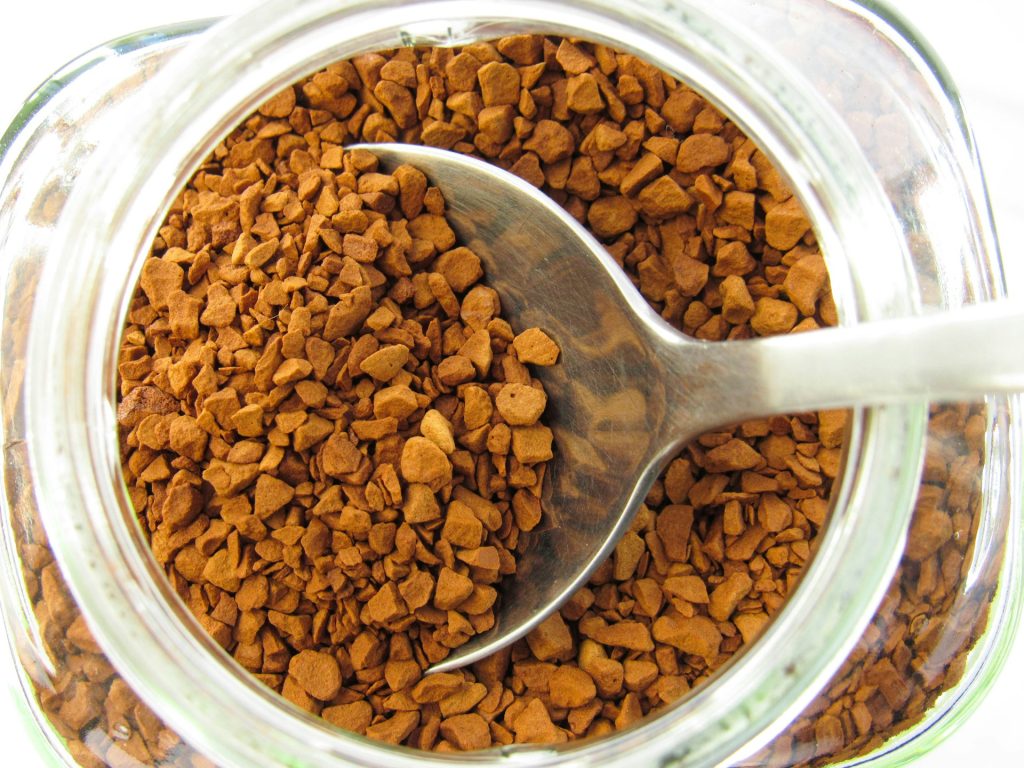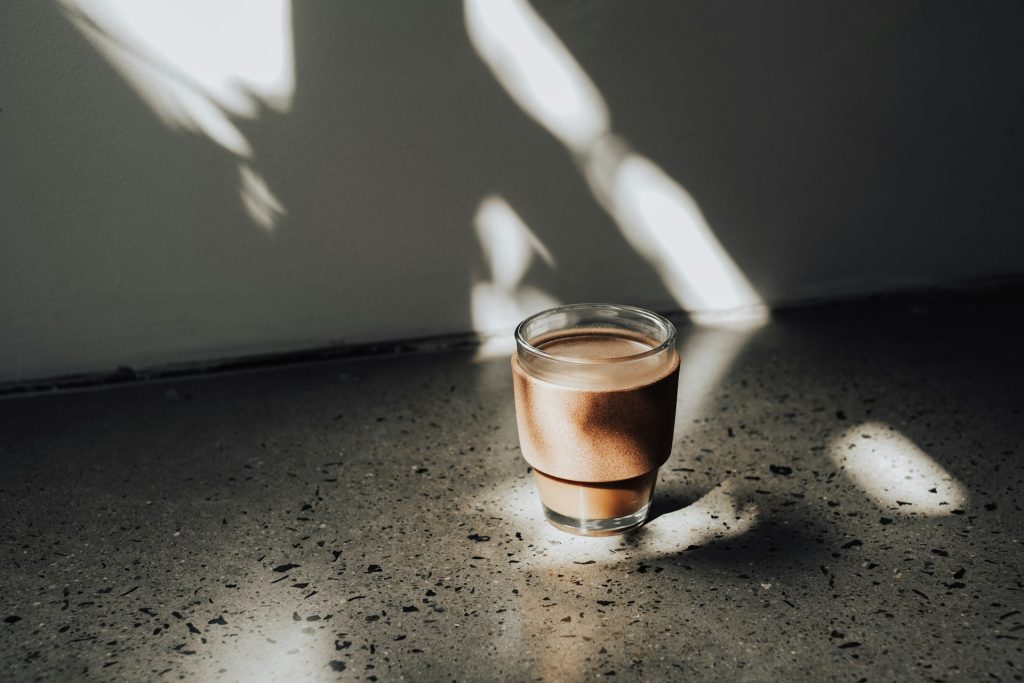Table of Contents
Many times, amidst the hustle of getting my teens out the door and myself caffeinated, I’ve reached for the convenience of instant coffee. But as with anything in the pantry, one wonders about its longevity. Can a jar of instant coffee in an airtight container keep indefinitely, or does it lose the freshness of the coffee over time? Unlike a cold brew or a cup of coffee freshly made from ground beans, instant coffee boasts a longer shelf life, but it is not immune to going bad.
Bean coffee lasts for months when stored properly, but instant coffee does have its limits. Keeping instant coffee in an airtight container is crucial, as exposure to air can lead to signs of mold and affect the flavor. In the worst-case scenario, mold growth can occur, especially if stored in damp environments like pesky plastic containers that don’t seal well. So, while it’s tempting to buy in bulk for the sake of convenience, one must consider these factors to ensure each cup brewed maintains that signature zing.
What is Instant Coffee?
As I often explain to my curious teens, instant coffee is essentially coffee that’s been brewed, dried, and then frozen or spray-dried into crystals. All it needs is hot water, and voilà, you have a steaming cup of joe in a matter of seconds. It’s the convenience that makes instant varieties a staple in many households, including mine on those frantic school mornings. Plus, keeping a jar of instant coffee in a cool, dry place like the pantry makes it a reliable backup for when I’ve forgotten to restock my fresh beans.
But even the most convenient items come with an expiration date. Storing instant coffee properly can extend its life, but it’s still essential to keep an eye on the date stamped on the package. The expiration date is a good indicator of when the product may start to decline in quality, even if it’s not a precise moment when the coffee becomes unsafe to consume.
Shelf Life of Instant Coffee
Contrary to the belief held by some of my friends that instant coffee lasts forever, it has a shelf life that can be affected by various factors. When kept in an airtight container, instant coffee can last for years beyond its expiration date without losing the freshness of the coffee. However, this assumes ideal conditions, where the container has been sealed properly and stored in a cool, dry place, away from direct sunlight and fluctuating temperatures.
But let’s face it, not all of us are perfect in our storage techniques. Instant coffee left in plastic containers that aren’t airtight or exposed to daily kitchen activities can degrade faster. Signs of mold or mold growth can be a clear indication that the coffee is no longer good to use, even though it’s heartbreaking to throw out what could have been a perfectly good cup of comfort.
It’s a common question I get from fellow parents at PTA meetings: “Does instant coffee expire?” And the answer is yes, it can lose its quality. While it may not become harmful immediately after the best-by date, the quality – especially the flavor and aroma – certainly takes a hit.

Signs That Instant Coffee Has Gone Bad
As a coffee lover, I’ve learned to trust my senses. If the coffee grounds have an off smell or the flavor and aroma aren’t quite right, it’s probably time to toss it. While it might still be safe to drink, the experience of drinking coffee should be a pleasurable one, not a questionable gamble.
Appearance Changes
One of the joys of a good cup of coffee is its rich, inviting color. But when instant coffee starts to look dull or has lost its granular texture, it’s a tell-tale sign that it’s not at its best. Just like finding a pair of old jeans that no longer fit just right, finding your coffee has changed appearance is a clear signal it’s time to update your stash.
Over time, instant coffee can also clump together if exposed to moisture, a clear violation of the instant coffee code. While these changes might not necessarily mean it’s unsafe to consume, they certainly don’t bode well for the flavor profile that we all crave in our morning brew.
Aroma and Flavor Degradation
The moment you open a jar of coffee, the countdown to flavor degradation begins. If coffee is stored properly, this process is slow, giving you ample time to enjoy its full-bodied character. But when that rich aroma starts to fade, and the robust flavors begin to dull, you know the clock is ticking faster than usual.
And while some might argue that any coffee is better than no coffee, I say that life is too short for subpar brews. Each sip should be savored, and if the flavor profiles have become as lackluster as a rainy Monday morning, it’s time to bid that jar farewell.
Presence of Mold or Bugs
Even though we’d like to think our homes are fortresses against the elements, sometimes moisture or little critters find their way trapped in the container with our beloved instant coffee. This can lead to mold growth, an unwelcome guest in any kitchen. Once mold has made an appearance, it’s not just about the coffee’s quality anymore – it’s a matter of food safety.
It’s not uncommon in my circle to hear of someone who’s discovered their instant coffee has become a miniature ecosystem for bugs. This is a clear red flag, and no amount of love for caffeine should compel you to ignore it. In my book, any signs of mold or bugs mean it’s time for the coffee to go, no questions asked.
Health Concerns With Expired Instant Coffee
As a mom, I’m always on high alert for anything that might affect my family’s health. When instant coffee has been exposed to elements like moisture in the jar or if the jar or container was not sealed properly, it can lead to bacterial growth. An opened or unopened jar of instant coffee exposed to heat can also develop fungi and mold, which are not part of a healthy diet.
Expired instant coffee, especially if not stored properly, may not be safe to drink. The shelf life of instant coffee can be compromised by oxidative reactions, which happen when the coffee is exposed to oxygen. These reactions can change the flavor of instant coffee and, in some cases, lead to health concerns if the coffee has been packaged in a low-oxygen environment and then exposed to air. It’s essential to store instant coffee in a cool and dry place to prevent these issues. Single-serve packets typically offer a better barrier against exposure to oxygen than a large jar of instant coffee, reducing the risk of introducing moisture and contaminants.
Tips for Extending Instant Coffee’s Shelf Life
Proper Storage Techniques
Now, you might be asking, “Audrey, does instant coffee expire?” The answer is yes, but with proper storage techniques, you can keep your instant coffee tasting fresher, and longer. It’s all about minimizing the coffee’s contact with air, light, and moisture – the archenemies of coffee freshness.
Buying Smaller Quantities
One of the best tips I’ve picked up in my years of coffee devotion is to buy smaller quantities more frequently. This ensures that you’re always using the freshest instant coffee, and you don’t have to worry about it losing its luster before you can finish the jar. Plus, there’s something delightful about opening a new package and being greeted by the full, rich aroma of fresh coffee.
Freezing Instant Coffee for Long-Term Storage
As much as I love a hot cup of coffee, freezing instant coffee can be a great way to preserve its flavor and aroma for the long haul. By minimizing exposure to oxygen and keeping it away from heat, you’re giving your coffee a fighting chance against time. Just make sure to keep the coffee dry and sealed tight, possibly with silica gel packets to absorb any residual moisture.
When to Discard Expired or Spoiled Instant Coffee
It’s a sad day when expired instant coffee has to be tossed out, but it’s a necessary evil. If your coffee has an off smell, has changed in appearance, or there’s any sign of mold or pests, it’s time to say goodbye. Even if it’s a brand you love, it’s not worth the risk to your health or the assault on your taste buds.
Always err on the side of caution and replace any coffee that doesn’t meet the mark. After all, a fresh jar of instant coffee is an affordable luxury that ensures your mornings start on a high note. Don’t let expired coffee dampen your day – out with the old, in with the new, I say!

Frequently Asked Questions
1. How can I tell if my instant coffee has lost its flavor?
Determining whether your instant coffee has become a shadow of its former self is simpler than you might think. Beyond the expiration date, which is a conservative estimate, your coffee in the pantry can become less than stellar. If your morning cup lacks the punch it used to deliver, it’s likely that the instant varieties you’ve grown fond of have lost their zest. Keep your instant coffee in a cool, dry place to maintain its robust flavor, and give it a taste test if you’re in doubt. If the taste seems off, it might be time to refresh your stock.
2. Can expired instant coffee make you sick?
While a cup of expired instant coffee may not be your finest sip, it’s unlikely to cause illness if it has been stored properly. The manufacturing process ensures that instant coffee is quite stable, but as with any food product, there is a threshold for what is considered safe for consumption. If your coffee has passed its prime, you might notice an off-flavor, but this doesn’t automatically translate to a health risk. However, if there are signs of spoilage, such as mold or an unusual smell, it’s best to steer clear.
The Bottom Line
Instant coffee, much like its cousin regular coffee, is a staple in many households for that quick caffeine fix. While it boasts one of the longest shelf lives in the pantry, it is not immune to the ravages of time and the environment. Always check the expiry date and remember that even beyond this date, if your instant coffee is stored in an airtight container and shows no signs of spoilage, it’s likely safe to sip. Coffee enthusiasts know that the brewing process is part of the ritual, and while instant may not always match the depth of fresh grounds, it certainly wins in convenience.
Ultimately, if your instant coffee has a strange appearance, lacks its characteristic aroma, or has an off flavor, it’s time to let it go. Trust your senses more than the best-by date, but when in doubt, it’s better to err on the side of caution. Why risk a less-than-stellar cup or, worse, a health concern? Freshness is key for flavor and safety, so when your instant coffee falls short, it’s a clear signal to refresh your stock and get back to enjoying that beloved, hassle-free brew.

I’m Audrey, a dedicated mother of teenagers with an insatiable love for coffee. On BeanBrewLove.com, I intertwine my need for caffeine with reflections on life. Whether expressing a nostalgic sentiment or injecting a hint of sarcasm, my blog is a reservoir of coffee culture, brewing techniques, and global coffee reviews.




